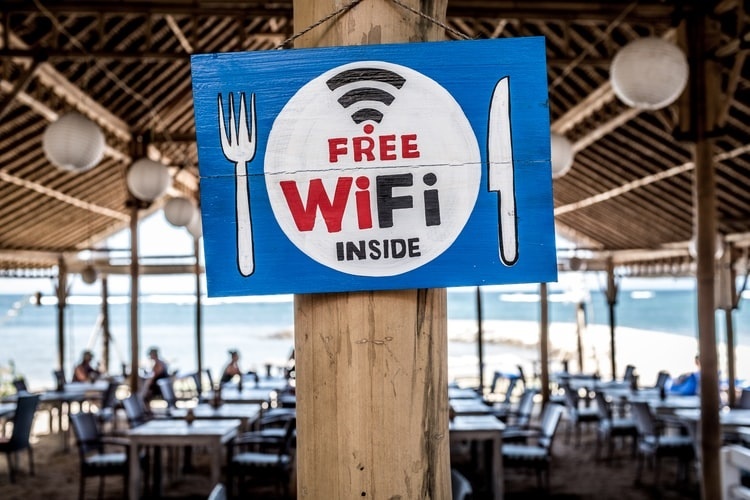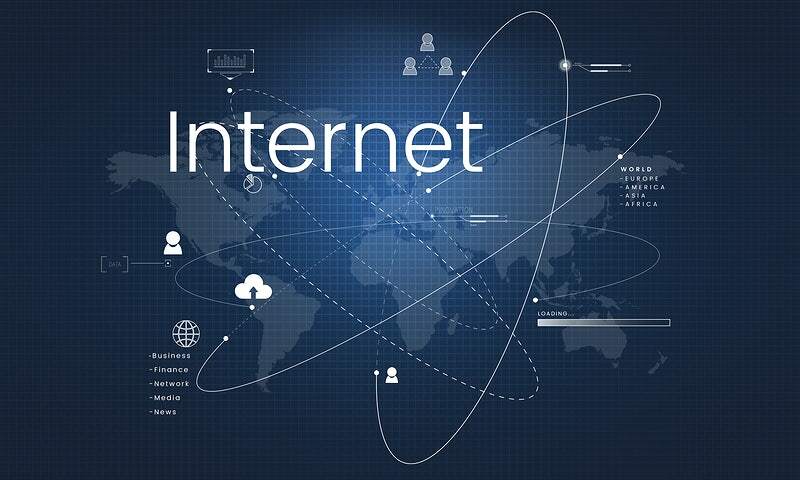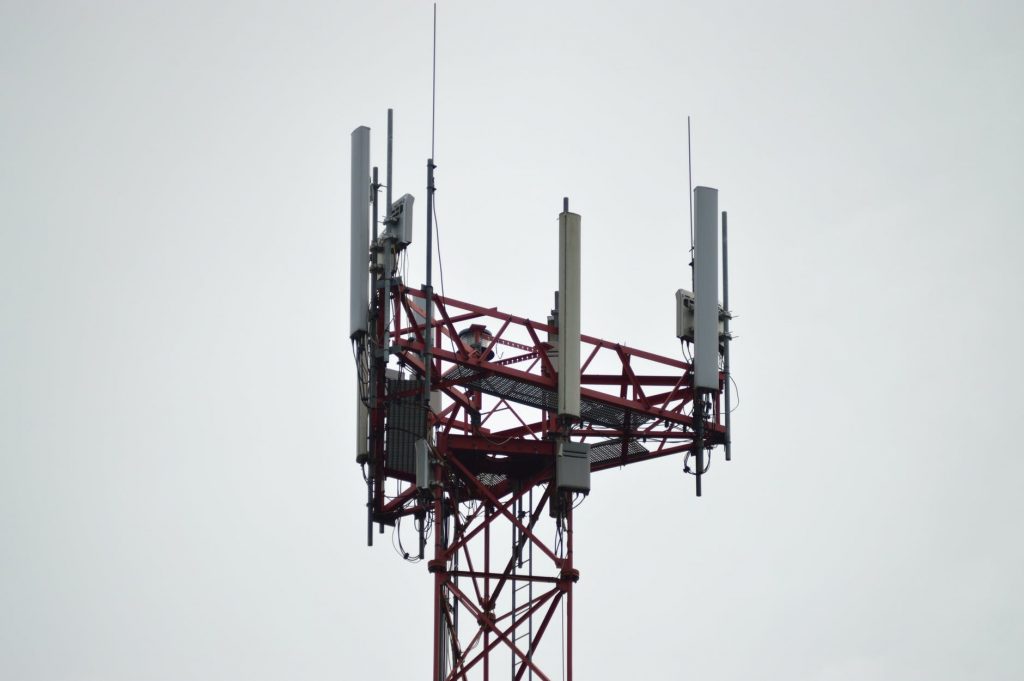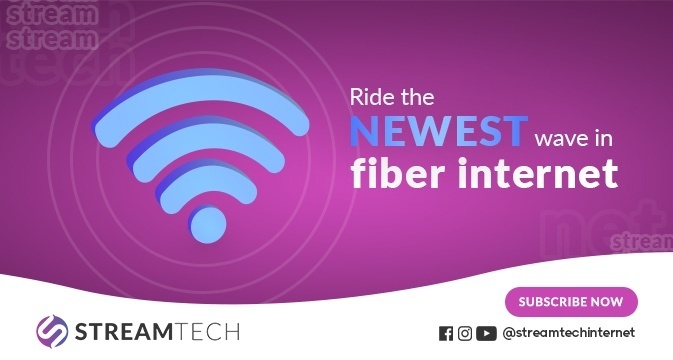Photo by Paul Hanaoka on Unsplash
Wireless networking is very popular nowadays. With the latest technologies and increased Internet speeds, it is more convenient to access the Internet wirelessly. This is through a wireless adapter. WiFi and the Internet may seem like the same thing since they both relate to accessing the Internet. But there are some significant differences that you need to know.
Many people are not aware of the difference between Wi-Fi and Internet. They often ask to get one when they need another. This article is very useful for those who need to be clarified about these two terms.
What is Wi Fi and a Wi Fi network?
The wireless technology that connects computers, tablets, cellphones, and other devices to the Internet is WiFi. It is a radio signal transmitted from a wireless router to a nearby device. Then, it converts the signal into data, the one we see and use.
The router, which connects to the Internet by wire or cable, receives radio signals from the device. WiFi has become a buzzword for wireless Internet. The majority of us use the term “WiFi” to refer to a broadband connection or free WiFi hotspots. These provide unrestricted Internet access on the go.
A WiFi network is essentially an Internet connection shareable by a wireless router with numerous devices. This can be in the household or in a company. The router connects to your Internet modem directly and serves as a hub. It broadcasts the Internet signal to all of your WiFi-enabled devices. As long as you’re inside your network’s service area, you’ll be able to stay connected to the Internet.
Surprisingly, the term “WiFi” does not stand for anything. We commonmy mistake WiFi, often known as Wi-Fi, wifi, wi-fi, or wi-fi, with Wireless Fidelity. However, this is not the case.
A marketing company coined the term in response to the wireless industry’s need for a user-friendly moniker to refer to the not-so-user-friendly IEEE 802.11 technology.

How does WiFi work and what are the types of WiFi Connections?
WiFi transmits data from your wireless network to WiFi-enabled devices. These include your TV, smartphone, tablet, and computer via radio waves. Your gadgets and personal information may be susceptible to hackers, cyber-attacks, and other risks since they communicate via airwaves.
Types of WiFi Connections
1. Wireline/Router
Nowadays, most houses connect to the Internet using a wireless router. Convenient setup, mobility within range of the WiFi access point (router), and the ability to connect numerous devices are among the benefits.
Part of the disadvantages includes restricted capacity. Another is slower speed as more devices join the same WiFi network, as well as potential interference from other electromagnetic devices in the home network.
2. Mobile hotspot or jetpack
Mobile and dedicated hotspots are becoming more popular as a secure method to connect while on the move. A jetpack and your smartphone are two typical hotspot devices. Today, almost every smartphone or tablet can act as a temporary hotspot, which is a wonderful choice if you just need it infrequently. It’s simple to use and doesn’t necessitate the purchase of additional hardware, but it may quickly drain your power and data.
A jetpack, on the other hand, functions as a specialized mobile hotspot that, like your smartphone, picks up a signal from nearby cell towers. It can connect to more devices and has a wider range of WiFi. Because it’s a separate device, it doesn’t drain your smartphone’s battery. The disadvantage is that you must purchase both the jetpack and a separate plan.
Mobile Connections
3. 4G LTE Home Internet
If you reside in a remote location with limited internet alternatives, 4G LTE Home Internet is a viable option. It provides high-speed internet access via cell phone towers and mobile networks, with average download rates of approximately 25 Mbps and often lower latency and more data than satellite. Depending on your provider, the benefits include faster speeds and more dependability. Limited availability, as well as the cost of service and setup, are some of the drawbacks of 4G LTE Home Internet.
4. 5G Home Internet
With the expansion of 5G Home Internet (Fixed Wireless Access), it has the potential to become one of the best and most cost-effective internet services available. It offers more capacity than 4G, substantially quicker speeds (up to 1Gig), and lower latency than what most people experience at home, thanks to the use of a new range of strong radio frequencies across a wireless network.
Service reliability is generally exceptional since 5G wireless base stations are often within 10 kilometers of houses. The only major disadvantage of 5G Home Internet right now is its restricted availability, but that is going to change.

What is Internet and how does it work? What is the World Wide Web?
The Internet connects billions of computers and other electronic devices across the world. With the Internet, you can get practically any information, interact with people all over the world, and do a lot more. All of this may be accomplished simply by connecting a computer to the Internet, often known as going online.
The World Wide Web, or simply the Web, is a collection of various websites that you may visit over the Internet. A website is made up of content, pictures, and other materials that are all connected. Websites can seem like other types of media, such as newspaper articles or television shows, or they might be interactive in a way that only computers can provide.
A website may serve practically any purpose: it might be a news platform, an advertisement, an online library, a forum for exchanging photos, or an educational or instructional site. When you’re online, you may use a web browser to access and see websites. Keep in mind that the web browser is not the Internet; it only shows websites that have been stored on the Internet.
It’s critical to remember that the Internet is a worldwide network of physical links, including copper telephone wires, television cables, and fiber optic cables.
Even wireless networks such as WiFi and 3G/4G have physical wires to connect to the Internet. When you go to a website, your computer makes a request to a server through these lines. Websites are kept on a server, which functions similarly to your computer’s hard disk. The server fetches the webpage and delivers the proper data back to your computer after the request is received. What’s even more astonishing is that it all happens in a matter of seconds!

Types of Internet Connection
The type of Internet connection in an area will have a significant impact on the availability, speed potential, and general quality of Internet services that customers are subscribing to.
1. Fiber Internet – The fiber-optic internet is perhaps the finest connection type. Fiber, as the name implies, refers to an Internet connection delivered to your house via fiber-optic cable, which transmits data by sending pulses of light down tiny strands of glass or plastic called fibers.
These fiber-optic strands provide faster and more reliable connections than other forms of connections. Although fiber-optic can provide download speeds of up to 2 gigabits (2,000 megabits per second) — fast enough to download a two-hour HD movie in under a minute — most fiber-optic providers’ maximum download speeds are likely to be around 1,000Mbps. Upload speeds are also much quicker with fiber-optic connection, which is very crucial while working and studying from home.

2. Satellite Internet – Because satellite Internet does not rely on ground-based infrastructures such as cables, cellular towers, or line-of-sight antenna connections, it is one of the most broadly available kinds of Internet. Instead, you’ll communicate with satellites circling high overhead using a unique dish.
Your Internet provider will come out and place a satellite dish on the top of your house or on the ground pointing southerly to get it set up. It is ideal for those who live in remote regions with few alternative options, especially since poor weather and other impediments may impact your service in ways you can’t predict.
The more conventional ones
3. Cable Internet
Although cable internet lacks the speed and dependability of fiber-optic as an Internet source, it is more commonly available. Cable is one of the most popular Internet connections, and it’s frequently combined with home phone and TV services. Because cable Internet utilizes the same coaxial connections as cable TV, this makes it logical.
Although coaxial connections lack the speed and dependability of fiber-optic lines, cable internet remains one of the quickest options when it comes to Internet speed. Most cable companies provide a range of download speeds, including a gigabit package with download rates of about 940 Mbps. Upload rates, on the other hand, are a different story, with few providers offering upload speeds of more than 50Mbps.
4. DSL Internet – DSL stands for digital subscriber line, and it’s commonly offered in regions where cable or fiber Internet isn’t available. This type of broadband Internet allows you to connect to the Internet via your phone lines. Unlike dial-up, which would cause a call to break your connection, DSL allows you to access the Internet without worrying about an incoming call disrupting your connection.
5. Cellular Internet – A cellular connection is another option to get internet access over the air. A mobile phone provider links your router or hotspot device to the nearest cellular tower using this internet connection type, just as it does with your phone.
Speeds will vary depending on where you live and how near you are to a tower, but they will almost certainly be faster than a fixed wireless connection.

What’s the difference between WiFi and Internet?
It is important to note that these are just two terms that describe two separate inventions with their own unique sets of benefits depending on your needs and preferences. The reason we have compared them in this article is for customers, who are looking into getting an Internet plan, can make an informed decision about what type of service they can subscribe to.
1. Speed
The most apparent difference between WiFi and the Internet is their speed. As mentioned above, you can get wired or wireless connections. Wireless connections are obviously faster than wired connections but theoretically, there is no difference in speed between WiFi and the Internet if they are both wired up to a router or modem. However, most people connect their computers to the networks wirelessly instead of using cables so there will definitely be different speeds. To conduct a more accurate test, Internet download tests like Speakeasy Speed Test and Firefox Test Speed would be useful comparisons since downloading online files require more bandwidth. WiFi downloads are more dependent on the infrastructure of the wireless connection.
2. Usage
The way you use and access the Internet is also a big difference between WiFi and the Internet. You can connect to the Internet via WiFi in many places nowadays such as libraries, coffee shops, or school campuses. But sometimes they restrict usage according to bandwidth load which is why many people are not able to connect. Wi-Fi connection will be more common in offices since they have a better bandwidth capacity compared to home networks with many computers connected at once. An Internet connection will provide a steadier connection than WiFi because it is wired while also having fewer restrictions compared to public locations with free WiFi hotspots.
3. Signal strength
Both types of networks (WiFi and Internet) depend on signal strength. The higher the signal strength, the more stable your connection is with little or no interference. WiFi hotspots will be harder to access than the Internet because there may be a low amount of bandwidth which can interfere with network usage
4. Security
Both Wi-Fi and Internet are prone to security risks if they aren’t properly secured by enabling passwords and encryption. It is also important to make sure that you are connected to a secure WiFi network so that unauthorized users cannot tap in and access your data. If you want even better protection, find out what kind of encryption level your wireless router supports and ensure that it is enabled for maximum protection against hackers.

The Streamtech Difference
Whether it is WiFi or Internet, the most important thing is getting the best internet service for your online needs.
Amazing news! Streamtech, the country’s newest internet service provider or ISP, allows you to enjoy fast and reliable fiber Internet access at a reasonable price. With its connection to a global area network, its connection is, indeed, reliable. It gives the best home fiber internet that will suit your own unique routines. Subscribers are able to access the internet content that they need.

It also provides an upgraded Internet experience for residential subscribers to match their household needs. With its available Extendifi Wi fi Extenders, customers can spread the wi fi signal coming from the wi fi router to all parts of the home.
With Streamtech, you can get fast, reliable, and unlimited internet plans that are also affordable. The Internet service packages can also be bundled with cable TV services through Planet Cable.
Subscribe to Streamtech now and enjoy an upgraded Internet experience and enhanced connectivity! Visit its website or Official FB Page if you have questions or for more details.









